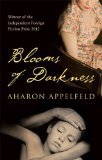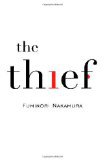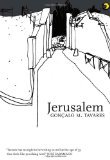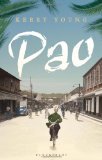 Translated from the Hebrew by Jeffrey M. Green
Translated from the Hebrew by Jeffrey M. Green
Winner of the 2012 Independent Foreign Fiction Prize
Five words from the blurb: Holocaust, Jewish, boy, hides, brothel
Blooms of Darkness is set during WWII and follows an eleven-year-old Jewish boy as he is forced to leave his family and hide from the Nazis in a brothel.
Blooms of Darkness is one of the most depressing books I’ve ever read. It isn’t a roller coaster of emotions, it is an endlessly bleak book without a glimmer of hope anywhere. I think the fact it is narrated by an innocent child, separated from his friends and family, makes it have even more impact. The loneliness and grief were heartbreaking and the thought of any child growing up in such terrible circumstances is hard to take.
Very little happened, but the observations and emotions were powerful and realistic – the author’s own experiences as a Jewish boy in hiding gave this book a painful authenticity. The writing style was simple and quiet and it was surprising to see how distressing a book could be without actually containing any graphic scenes. The fear of discovery and imagining what might have happened to loved ones was enough to give this book a terrible sense of impending doom:
Hugo refused to think about what had happened to Erwin in the ghetto. One night they sealed off the orphanage on all sides, took the orphans out of their beds, and loaded them onto trucks while they were still in their pyjamas. The orphans wept and cried out for help, but no one did anything. Anyone who opened a window or went out would be shot.
It seems wrong to criticise a book for revealing the painful truth, but the continual darkness was too much for me. I longed for a few lighter moments to penetrate the bleakness, but I guess I’ll just have to take comfort in the fact that I’m lucky enough to never have experienced anything like this.
Recommended to anyone who’d like to know what it is like to be a child living in constant fear, but I’m sure it will be too distressing for many.

.
The thoughts of other bloggers:
Aharon has shown why he considered one of the foremost Hebrew writers. Winstondad’s Blog
…there’s nothing in the novel which makes it stand out amongst its peers and competitors. Tony’s Reading List
It’s a sombre work, because it deals with the Holocaust, but it’s beautiful all the same… ANZ Litlovers Litblog










